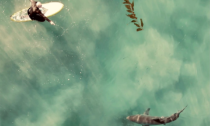
Standing on a balcony lit by San Diego sun, wildlife videographer Scott Fairchild thumbs the throttle of his drone controller. As the drone flies over breaking waves, he sees what he normally sees: some surfers, a swimmer, and a great white shark.
As the lone swimmer drifts away from others in the water, he seems to pique the shark’s interest. It changes course and starts to follow. A hundred yards from shore, this is the exact location of a 2008 fatality caused by a white shark, where a swimmer was “bit in half,” Fairchild tells me later, training for a triathlon.
The shark sinks into murky water, then resurfaces. It veers off to the side, then returns. The swimmer’s arms take turns splashing the water around him, and the shark speeds up, closing the gap between them.
Un...
Read More

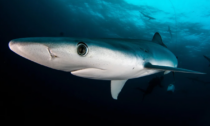
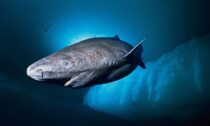
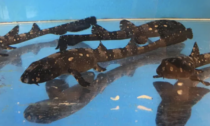
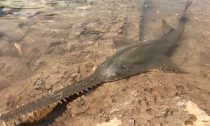







Social Profiles